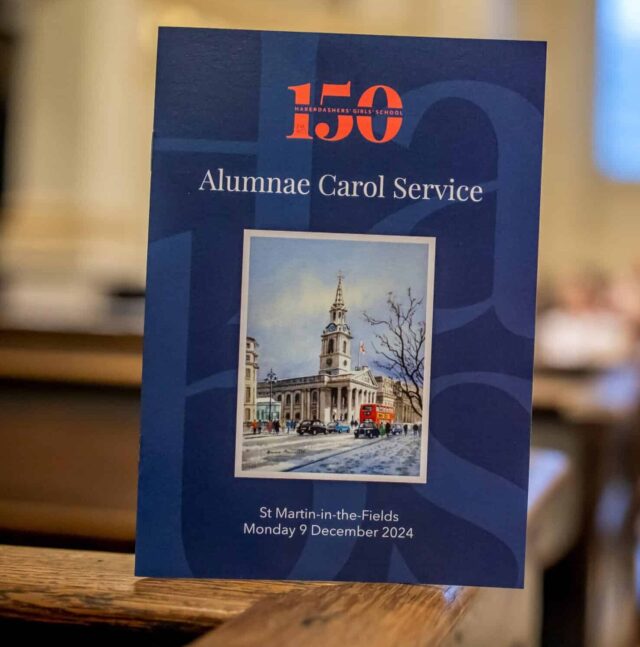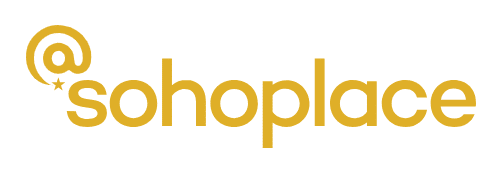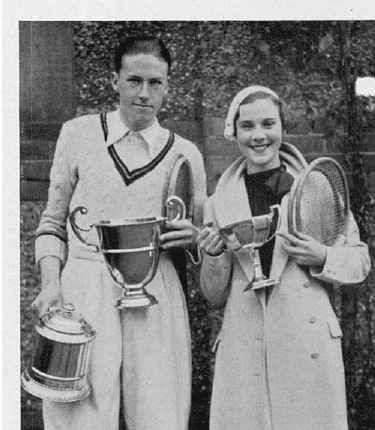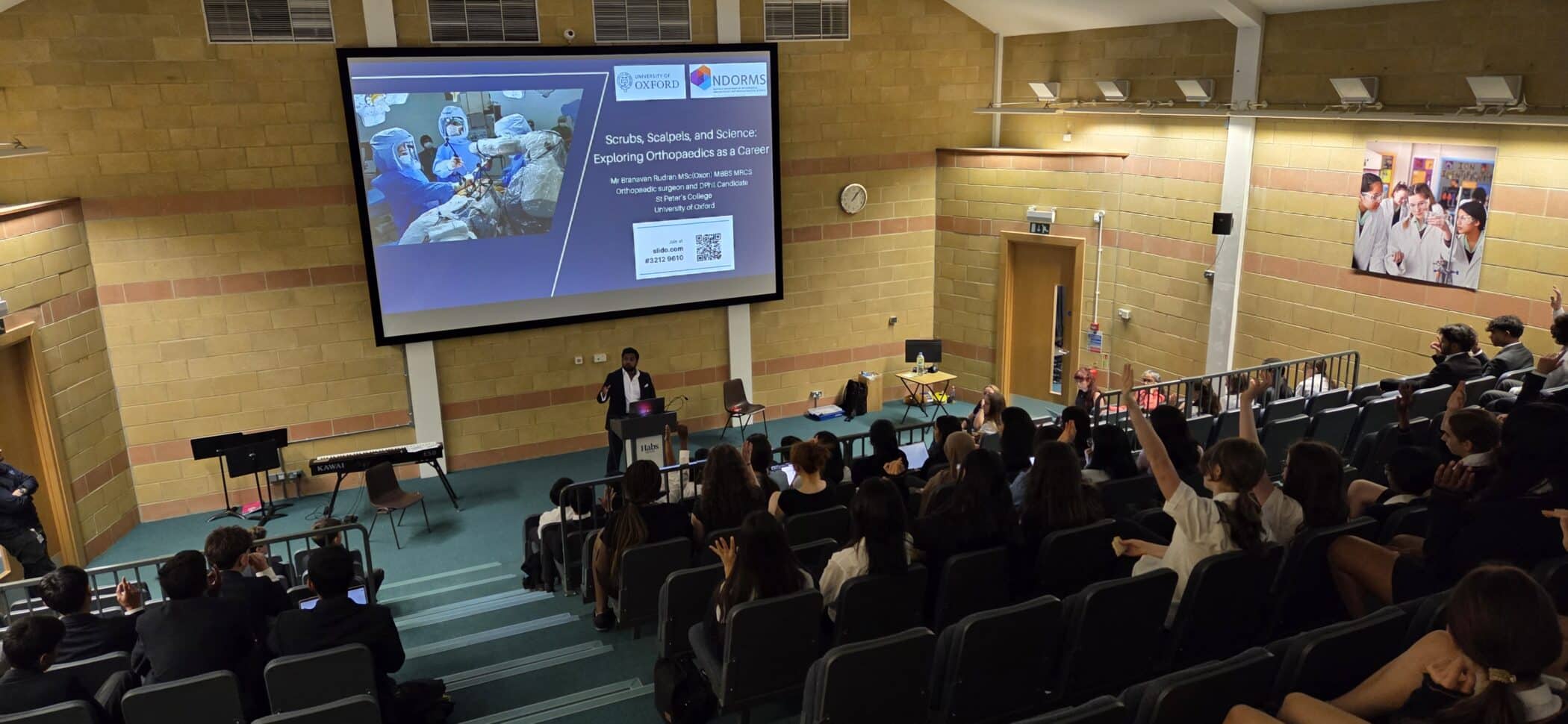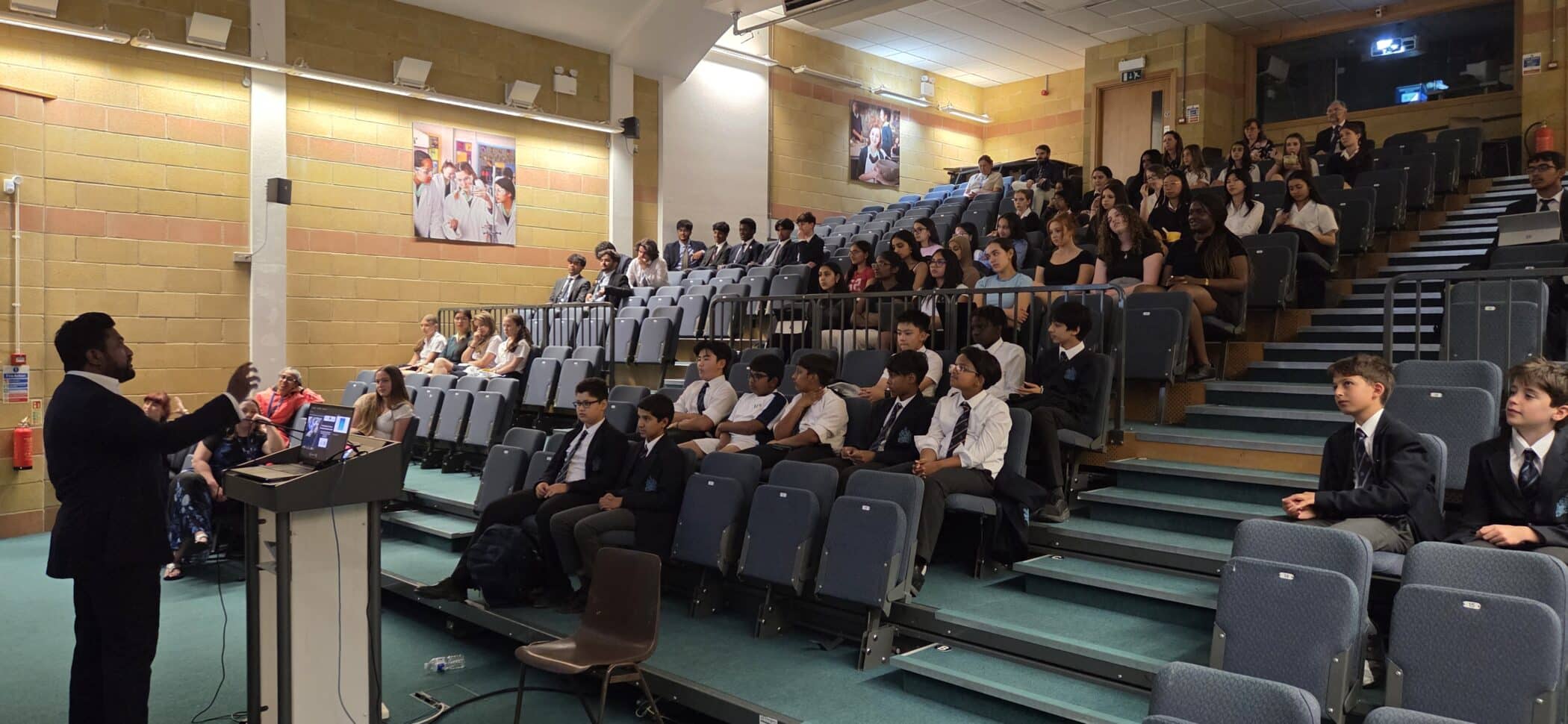Branavan Rudran (OH 2010), a former Habs student and now a trauma and orthopaedic registrar as well as a DPhil candidate at the University of Oxford, returned to school last week to deliver an engaging and insightful talk to aspiring medics and researchers. Speaking to a full room of students from across the year groups from both schools, he struck the perfect balance between cutting-edge science, practical advice and humour, leaving the audience both informed and inspired.
Opening with reflections on his own journey from Habs to medicine, Branavan offered clear and practical guidance to students navigating the early stages of the application process. He spoke about making smart A Level choices, the value of consistent extracurricular involvement, and how to approach volunteering and work experience meaningfully. He also gave advice on interview preparation and what admissions tutors are really looking for and generously offered to return later in the year to help students with practice interviews.
A major part of his talk focused on the transformative role of artificial intelligence and virtual reality in medicine, particularly in surgical training. He discussed how personalised, data-driven simulations can be used to train surgeons more effectively, allowing them to rehearse complex procedures using real clinical scenarios. AI-powered systems can provide detailed feedback, helping improve precision and ultimately reducing the likelihood of surgical errors. Branavan made clear how these technologies are already being used to improve learning outcomes for trainees and patient outcomes in practice.
He also broke down the process of clinical research, guiding students through the different phases of medical trials and showing how AI is increasingly used to identify risk factors, predict outcomes and support decision-making in real time. Throughout, he highlighted the need for doctors who not only practise medicine but also help shape its future through innovation and research.
What made the talk especially memorable was Branavan’s ability to make complex topics both accessible and exciting. His use of humour, personal anecdotes and genuine enthusiasm for teaching kept the room engaged throughout, and the lively Q&A that followed reflected just how much interest he had sparked.
Branavan’s visit was a brilliant example of what makes the Habs medical community so strong: alumni returning to share knowledge, open doors and support the next generation. His talk not only broadened students’ understanding of the medical field but reminded them of the power of curiosity, technology and collaboration in shaping the future of healthcare.
Related posts
See all posts